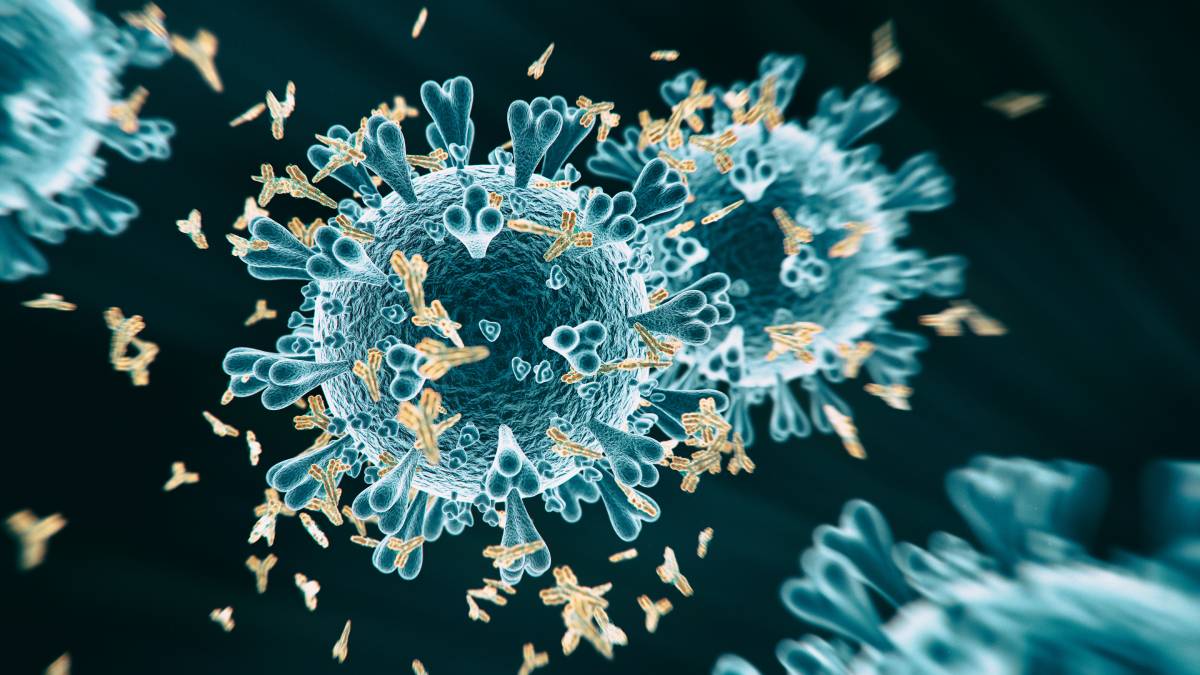
Since the outbreak of SARS-CoV-2, the body of scientific literature on COVID-19 has rapidly expanded [1]. Current research often focuses on COVID-19 antibodies, which provide valuable information on the continuing spread of the virus, previous infection patterns, and the immune response [1].
Widespread availability of commercial assays that detect SARS-CoV-2 antibodies has enabled researchers to examine acquired immunity to COVID-19 at the population level [3]. The four major types of antibody tests are rapid diagnostic tests (RDT), enzyme-linked immunosorbent assays (ELISA), neutralization assays, and chemiluminescent immunoassays [4]. Currently, there is no standard antibody test for detecting SARS-CoV-2 antibodies [5]. Antibody tests for SARS-CoV-2 sense the presence of IgA, IgM, or IgG antibodies produced by B cells [4]. IgM antibodies are produced soon after infection, while IgG antibodies are produced later to maintain the immune response to a specific pathogen [4]. IgA is found on mucous membranes and assists the innate immune response [4]. New clinical reports indicate that antibodies against SARS-CoV-2 form between 6 and 10 days after infection, with peak IgM antibody levels at 12 days [4]. These IgM antibodies persist for up to 35 days [4]. In contrast, IgG antibodies peak at 17 days and persist for up to 49 days [4].
Higher antibody titers have been discovered in men than women, despite women generally having more B cells and producing more antibodies than men [7]. Observed during the acute stage of SARS-CoV-2 infection, higher antibody titers in men correlate with men showing more severe symptoms and experiencing a higher fatality rate [8]. Conversely, women have shown increased resistance against SARS-CoV-2 [8]. This may be due to the enhanced nature of innate antiviral responses, such as those mediated by toll-like receptors, in women [8].
The relationship between the presence of SARS-CoV-2 antibodies and the risk of subsequent COVID-19 reinfection remains unclear [6]. Data from a recent study completed at the Oxford University Hospitals in the United Kingdom suggests that the presence of SARS-CoV-2 IgG antibodies is associated with a substantially reduced risk of reinfection for 6 months [6]. The researchers performed a prospective longitudinal cohort study of 12,541 health care workers to assess the relative incidence of positive COVID-19 tests in those who were seropositive for SARS-CoV-2 antibodies and in those who were seronegative [6]. Of the 11,364 health care workers who followed up after an initial negative antibody result, 223 received a positive COVID-19 test [6]. Of the 1,265 health care workers who followed up after an initial positive antibody result, only 2 received a positive COVID-19 test [6]. It may be possible that SARS-CoV-2 protective immunity lasts longer than 6 months [9]. In November 2020, there had been more than 30 million confirmed infections, but few documented cases of reinfection with SARS-CoV-2 throughout the world [9].
An analysis of 20,000 patients with COVID-19 in the United States concluded that convalescent plasma therapy with neutralizing antibodies is safe and may reduce mortality in critically ill patients [10]. Neutralizing antibodies can be passively transferred into patients before or after viral infection to prevent or treat disease [10]. Therapeutic neutralizing antibodies with high specificity and strong affinity to target proteins have been used to treat several viral infections, including Ebola virus and influenza virus [10]. The neutralizing antibodies against SARS-CoV-2 that have been investigated so far all target spike proteins on the surface of the coronavirus [10]. Plasma containing neutralizing antibodies from convalescent individuals infected with SARS-CoV-2 currently is being administered to severely ill patients [10]. Current research finds that transfusion of such plasma to critically ill patients has resulted in reduced or undetectable viral loads and relieved acute respiratory distress syndrome [10].
References
- Figueiredo‐Campos, P., Blankenhaus, B., Mota, C.,. et al. (2020). Seroprevalence of anti‐SARS‐CoV‐2 antibodies in COVID‐19 patients and healthy volunteers up to 6 months post disease onset. European Journal of Immunology, 50(12), 2025-2040. doi:10.1002/eji.202048970
- Altmann, D., Douek, D., & Boyton, R. (2020). What policy makers need to know about COVID-19 protective immunity. The Lancet, 395(10236), 1527-1529. doi:10.1016/s0140-6736(20)30985-5
- Spellberg, B., Nielsen, T., & Casadevall, A. (2020). Antibodies, Immunity, and COVID-19. JAMA Internal Medicine. doi:10.1001/jamainternmed.2020.7986
- Kopel, J., Goyal, H., & Perisetti, A. (2020). Antibody tests for COVID-19. Baylor University Medical Center Proceedings, 34(1), 63-72. doi:10.1080/08998280.2020.1829261
- Weinstein, M., Freedberg, K., Hyle, E., & Paltiel, A. (2020). Waiting for Certainty on Covid-19 Antibody Tests—At What Cost?. New England Journal of Medicine. doi:10.1056/NEJMp2017739
- Lumley, S., O’Donnell, D., Stoesser, N., et al. (2020). Antibody Status and Incidence of SARS-CoV-2 Infection in Health Care Workers. New England Journal of Medicine. doi:10.1056/nejmoa2034545
- Robbiani, D., Gaebler, C., Muecksch, F.,et al. (2020). Convergent antibody responses to SARS-CoV-2 infection in convalescent individuals. bioRxiv. doi:10.1101/2020.05.13.092619
- Jin, J. M., Bai, P., He, W., et al. (2020). Gender differences in patients with COVID-19: Focus on severity and mortality. Frontiers in Public Health, 8, 152. doi:10.3389/fpubh.2020.00152
- Tillett, R., Sevinsky, J., Hartley, P., et al. (2020). Genomic evidence for reinfection with SARS-CoV-2: a case study. The Lancet Infectious Diseases. doi:10.1016/S1473-3099(20)30764-7
- Jiang, S., Zhang, X., Yang, Y., Hotez, P., & Du, L. (2020). Neutralizing antibodies for the treatment of COVID-19. Nature Biomedical Engineering, 4(12), 1134-1139. doi:10.1038/s41551-020-00660-2

